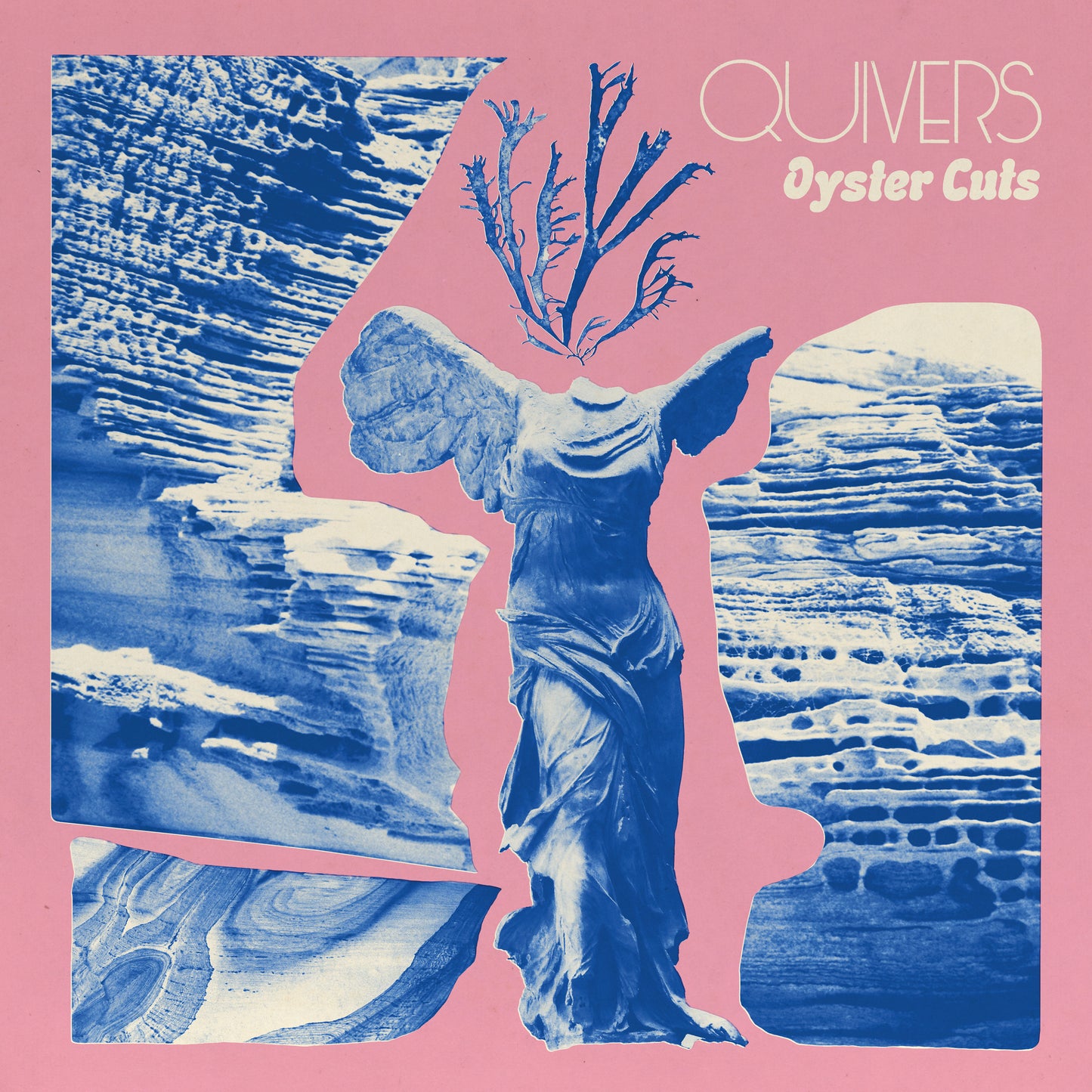Quivers - Oyster Cuts
Quivers - Oyster Cuts
Couldn't load pickup availability
Oyster Cuts, the Merge Records debut of Quivers, finds the Melbourne, Australia–based outfit awash in the kind of emotions people tend to fear losing themselves in. Finding love after grief, the outsized guitar pop of Quivers gleams like the surface of an ocean, beneath which lies a reef that is at turns beautiful and painful, its features alien and sharp enough to wound. Propelled by melodies that at times recall Galaxie 500 and The Pretenders, Quivers make music that is tender and tough, compelling the listener to dive in again and again, each song a new angle on all of your feelings. Oyster Cuts is sunshine pop with blood in the water. The losses and loves that have informed Quivers’ music since their inception the sudden loss of a brother in the cracked optimism of We’ll Go Riding on the Hearses (2018) and the life in and after grief of Golden Doubt (2021) ripple into Oyster Cuts, which is committed to moving forward while accepting that some feelings, like grief, are a cycle. Crucially, Quivers committed to moving forward with each other. Paring away the choir and strings of Golden Doubt, Oyster Cuts is a showcase for what’s still possible when four people Sam Nicholson (guitars), Bella Quinlan (bass), Michael Panton (guitars), and Holly Thomas (drums) make music together. In utilizing tape loops which open and close Oyster Cuts, circling the album like sharks Quivers place emphasis on repetition, deploying patterned riffs and navigating circular thoughts until they swell to their breaking point. Their dreamy strain of sun-faded jangle pop is leaner and more muscular as a result, their keenly observed palette darkened with blushes of The Cure, Echo & the Bunnymen, and The Durutti Column. Within this framework, Quivers break new ground as a band, adding dimension to their hallmark group vocals by having Quinlan take lead on four songs, homing in on the interwoven guitars of Nicholson and Panton, and driving it all home on the purposeful groove of Quinlan and Thomas. Quivers’ songs feel like long-running conversations between friends in the sense that a conversation is both an act of speech and a space people hold for each other. The first two tracks on Oyster Cuts, “Never Be Lonely” and “Pink Smoke,” take those private universes composed of shared language, memories, snatches of songs, and the light of a cell phone’s screen mid-doomscroll and turn them into a beacon, searching lyrics set ablaze by massive hooks. “All I ever wanted was a true friend / All I wanted was a friend with benefits / All I ever wanted was transcendence,” sing Quinlan and Thomas at the outset of the album, and Oyster Cuts spools out into the horizon from there. The four members of Quivers are not only given to exploring this space but to filling as much of it with themselves as possible, locking in on each other no matter how hazy and chaotic matters of the heart can get. Every moment of catharsis Quivers conjure from the ether is an invitation to join them. Listening to them soar where others would ruminate, their invitation is impossible to resist.


